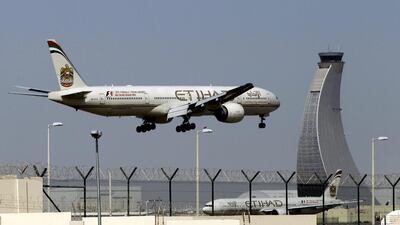The new American travel ban on electronic items larger than smartphones in the cabin of commercial aircraft leaving from the Middle East raises more questions than answers. The ban states that electronics such as laptop computers and tablets are not permitted in carry-on baggage on flights to the United States originating in Middle Eastern cities from Riyadh to Amman, including Abu Dhabi and Dubai. However, these electronic devices can be transported in checked baggage that is kept in the aircraft hold.
We recognise the need to ensure the safety of the international aviation sector and that the US is especially a target. The UAE, in particular, has an impeccable commitment to aviation safety – as is evidenced by the US pre-clearance facility at Abu Dhabi international airport. There are few places outside the US where passengers are able to clear American customs and thus arrive as “domestic” passengers. Abu Dhabi is one of those places because this country is committed to the close bond between our countries.
That is exactly why we need more clarity on the intelligence that has led to this ban. Why, for example, is it safer for electronics to be placed in the hold of an aircraft as opposed to the passenger cabin? If there are problems with X-ray technology used to screen passengers versus the machines used to scan baggage, airport authorities around the world must act quickly to update their systems. We have no indication if the intelligence underlining this ban is new or based on long-term reporting.
This lack of clarity has already caused considerable confusion in regional airports. All the more so because the United Kingdom has implemented a similar ban with different provisions for certain airlines. While we understand that not all intelligence can be made public, if authorities in the UK and the US were able to release more detailed information about the nature of the threat they have intercepted, the authorities would be better able to protect airports, airlines and passengers with sufficient and necessary measures.
Additional information would also dispel growing concern about possible ulterior motives behind this ban. We are committed to implementing every necessary measure to protect air travel. This is driven by the fact that our aviation sector is a critical pillar of our economy. Precisely because it is, we need clarity from our American and British partners.

